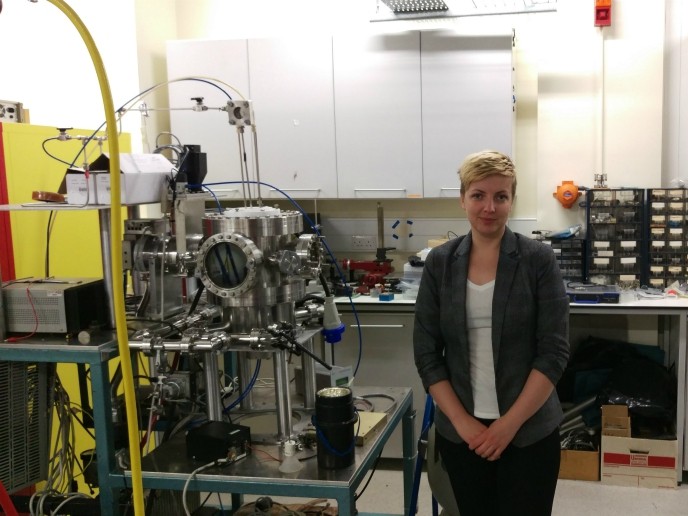Slovakia obtains research excellence in plasma physics
ELEvaTE is the first Slovak project in the twinning framework. Twinning aims to significantly strengthen a defined research field in a university from a Widening country by linking it with at least two internationally leading research institutions in other member states or associated countries. In partnership with the University of Innsbruck’s Institute of Ion Physics led by Professor Paul Scheier from Austria and the Open University’s Molecular Physics Group led by Professor Nigel Mason in the United Kingdom, ELEvaTE sought to improve the Electron and Plasma Physics Laboratory (EPPL) of the Faculty of Mathematics, Physics and Informatics at Comenius University. The goal was to make EPPL a European centre of excellence with an international impact. Bringing Slovakia closer to EU projects Comenius University explored ways to improve the EPPL’s scientific and innovation capacity so that it can participate in Horizon 2020 projects. Tapping into the know-how and best practices of the partner institutions was an essential step to address the networking gaps and deficiencies between the Comenius University and the internationally leading EU counterparts in the field. Various activities included training stays at partner institutions, joint summer schools, participation in international conferences and workshops, and the organisation of several scientific events. There were intensive exchanges of research and managerial staff between partner universities. Project coordinator Stefan Matejcik mentioned that legislative and organisational changes should support the emergence of the university’s own multidisciplinary research areas and platforms, the enhancement of competencies and facilities of project centres, knowledge transfer, and international cooperation – factors key for becoming a university of excellence. Project manager Viera Bordoy also highlighted that infrastructure is not just about laboratories but also about people. “A support structure within universities is key to success. Building networks, sending people to foreign institutions, and improving skills must be encouraged at all costs to increase excellence,” Bordoy explains. Since project launch, EPPL has signed new cooperation agreements with research institutes and the industry, and, importantly, increased participation in Horizon 2020 projects. Important research activities Early-stage researchers conducted research in the field of electron- and ion-driven processes, which lies at the intersection between physics and chemistry. The results produced are especially important to planetary science, materials science, biomedicine and agriculture. An important project outcome was the collaboration of EPPL with astrophysicists involved in the European Space Agency’s Space mission Rosetta. It resulted in a new research programme on the electron emission spectra in water, oxygen and nitrous oxide molecules that are found in comet atmospheres. Another important boost for EPPL was the collaboration with the Europlanet consortium. This will lead to the development of a transnational laboratory facility for studying electron-driven processes in the planetary atmospheres. Other research activities included the study of electron ionisation, in particular the interaction of low-energy electrons with organo-metallic molecules for nanotechnology applications. Researchers also made important advances in the field of low-temperature plasma. Results related to the plasma discharge breakdown proved relevant for biomedicine and agriculture applications. Lastly, researchers showed that ion-mobility spectrometry combined with mass spectrometry are excellent tools for detecting harmful substances – phthalate esters – in plastic food packaging and pharmaceutical products. ELEvaTE enabled the EPPL of Comenius University to compete with other EU institutions and become a research centre for excellence. Increased partnership with other European centres and participation in EU projects should ensue.
Keywords
ELEvaTE, Electron and Plasma Physics Laboratory (EPPL), Comenius University, Slovakia, plasma physics, European Space Agency, Europlanet, electron ionisation, ion-mobility spectrometry



